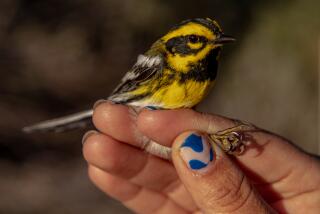Saraswati or Sarah? Mao Tse-tung or Mick Tung? : Names: Immigrants have it doubly hard when baby arrives.
- Share via
What’s in a name? If you are an immigrant American, that’s a question demanding serious consideration.
Take me and my three tots, for instance--starting with me.
I am, from my history to my abject dependence on red pepper, an Indian from India. But Richard is my name--really. And, growing up in a part-Catholic, innocent corner of South India, I had always been proud of it (Richard the Lionhearted was big in my childhood story books), though even in India, Richard Nixon brought unwelcome notoriety to my first name.
But when I came to this country I decided that I would give my child a name that was more recognizably “Indian.”
Five years later, my first child, a son, was born. Give him an American name, said many of my friends (meaning, of course, give him an Anglo-European name), passionately. He’ll have enough problems without having to battle teasers and mispronouncers, without being scarred by it all for life. So said (among others) a white American father who had named his two adopted Korean girls Jacqueline and Susan.
I know what it is like to have a foreign face and an “American” name. Americans will often ask, when I introduce myself, “But what is your real, your Indian, name?”
On the other hand, I thought, any child born here is going to be an outright American no matter what name I give him: America is so addicting. Now, at age 8, my oldest son is already a perfect consumer of American television and its commercial offerings, parroting their sales pitches with an innocently straight face as infallible fact. He is unlikely ever to choose to adopt his parents’ country. So why not leave him some little stamp of his heritage, a little memory aid--an Indian name? Nothing overboard, no Venkatasubramaniam, but a simpler vote for the principle and future of cultural diversity.
But nowadays, names have become disposable pieces of heritage, changeable as easily as a soiled shirt--as indeed adult immigrant Indians under the assault of massacred names are constantly doing: from Balwinder to Billy, from Subramaniam to Sam, from Saraswati to Sarah, from Krishna to Chris.
Finally, in recognition of our new land and out of concern for our child’s well-being, we named our son James Russell, after the Irish writer and the British philosopher, my favorites.
Soon thereafter, I met an American couple of European heritage whose cosmopolitan outlook and respect for Indian spiritual classics had led them to give their children Indian names. America is a world country, I began to tell myself, not a country that is or should be hostage to the European culture that has shaped its destiny in the last 300 years. To deny your heritage, even secondhand, through the medium of your children’s names, is in some sense to be ashamed of it. It is up to us immigrants to have the courage to change things, to reinvent American society, to force it to be tolerant toward the spectrum of the human race.
For Cassius Clay and Leroi Jones, changing their names to Muhammed Ali and Amiri Baraka was a flamboyant act of courage. For newer Asian immigrants, whose faces at all times shout their heritage, the choice isn’t that easy, especially in the naming of a child who will live mostly in the 21st Century.
Still, I gave my next two children Indian names: Dev Jawahar, and Rohit Arjun.
Janeshwaran or John S. Warren, Mohammed Khan or Mort Conway, Mao Tse-tung or Mick Tung. Which will it be for you?
More to Read
Sign up for Essential California
The most important California stories and recommendations in your inbox every morning.
You may occasionally receive promotional content from the Los Angeles Times.













